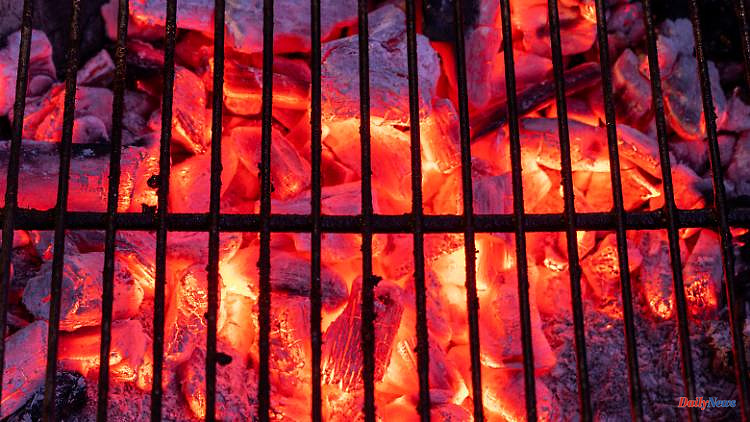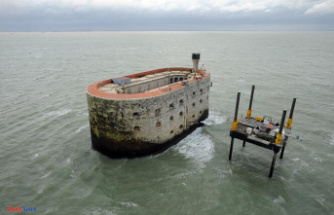In this country, charcoal is particularly popular when it comes to grilling. It smells good, but it's not good for the environment. Sometimes the material also comes from questionable sources. For example from tropical wood. Öko-Test reveals better alternatives.
Now that it's nice and warm, the grill is fired up. Summer is then celebrated with a small fire in the charcoal grill. Because this variant is still in front of the gas grill for German sizzlers. Öko-Test looked at the matter and tested what the fuel, i.e. the charcoal, among other things, is good for, which is burned in sacks by the sack in this country.
Eight charcoal grills and ten grill briquettes were tested for this purpose. Among other things, they looked at the wood from which the fuel is obtained. Are tropical woods used and if so, are they obtained sustainably and are they certified accordingly? Is this information clear to the buyer? In addition, it was clarified how well coals and briquettes burn, whether there are any impurities and how long preheating is required before the fire can be started.
The original material of the briquettes is mostly wood, two are made of fossil coal and two are made of alternative materials: olive stones or coconut shells. These waste products from agriculture offer themselves as climate-friendly alternatives. The result is impressive: the testers awarded the overall rating "very good" eight times and "good" three times. However, two products are "defective".
The wood for most of the products in the test comes from Eastern Europe, some from Africa. Only the providers Pro Fagus and Nero obtain their raw materials from Germany. From an Öko-Test point of view, the use of tropical or subtropical woods can be okay. Namely when it makes ecological sense to hit them.
It becomes problematic if the supplier, even when asked, does not provide any information about where the wood comes from and the product does not bear a sustainability seal. This is the case with two products from the Favorit brand. The commissioned laboratory analyzed wood from tropical and subtropical climates in both the "Favorit Grill Quality Charcoal" and the "Favorit Grill Charcoal Briquettes". Consequently, both products received a "poor".
Two other products did not get more than "sufficient" and therefore do not receive a purchase recommendation. "Favorite Coconut Grill Briquettes" and "Flammenco Grill Charcoal Briquettes". The "Dehner grill briquettes", the "Grillprofi grill briquette" from the house of Rheinbraun fuel and the "Kingstone Premium Charcoal Briquettes" did a little better. These three products were rated "satisfactory". "Good", on the other hand, are the "Weber Premium Grill Charcoal", the "Mr. Gardener Grill Charcoal" from Hagebau and the "Countryside Let's BBQ Beech Charcoal" available from Kaufland.
So to the winners. In the eight products rated "very good", the composition and quality of the charcoal is consistently very good. The charcoals tested differ slightly in terms of grilling properties such as maximum temperature and preheating time. The following goods were awarded top marks: "BBQ Grill Charcoal" from Aldi Süd (2.99 euros, 3 kg), "Edeka at home Grill Charcoal" (3.29 euros, 2.5 kg), "Kingstone Premium Charcoal" from Bauhaus (9.99 euros, 5 kg), "Pro Fagus Der Sommer Hit Premium Beech Grill Charcoal" (16.99 euros, 7 kg), "Nero Bio Grill Briquette, Naturland" from Nero (6.99 euros, 2nd .5 kg), "Olio Bric gourmet grill briquettes made from olive stones" by Fruteg (7.99 euros, 3 kg), "Pro Fagus Grillis premium beech grill charcoal briquettes" (16.99 euros, 7 kg), "Weber briquettes " (9.49 euros, 4 kg).
The full test is available free of charge from Öko-Test.
Note: In the original test by Öko-Test, Weber's briquettes were classified as "poor". This was incorrect, so Öko-Test corrected its assessment. The Öko-Test editorial team writes about this:
"In our test of grilling charcoal and grilling briquettes (ÖKO-TEST Magazin 7/2022), we incorrectly evaluated the Weber briquettes from Weber-Stephen. The commissioned institute found wood from tropical or subtropical areas, among other things. We complained that this wood was not in the FSC -Certificate of the product were listed. This is wrong, unfortunately we made a mistake here. In fact, tropical and subtropical legumes are expressly declared in the Weber-Stephen FSC certificate. All wood species analyzed by the laboratory are covered by the FSC certificate. The product receives the overall rating "very good" instead of "inadequate". We apologize for this mistake."












